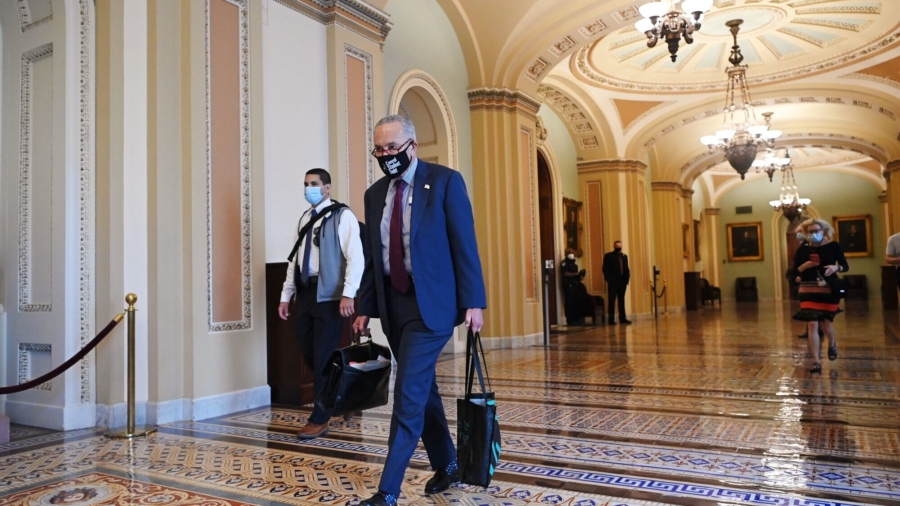The Senate agreed to wrap up the $1 trillion bipartisan infrastructure bill through a test vote.
In the 67–27 vote, 18 Republicans joined with Democrats to support moving forward on the legislation, clearing a key procedural hurdle.
More votes, mostly on amendments, are needed before the Senate can pass the bill.
It’s unclear when the final vote will happen.
The Senate Democrats need 10 Republican votes to pass the measure, which is one of the top priorities on President Joe Biden’s agenda.
“We can get this done the easy way or the hard way. In either case, the Senate will stay in session until we finish our work,” Senate Majority Leader Chuck Schumer (D-N.Y.) said in a floor speech before the vote. “It’s up to my Republican colleagues how long it takes.”
Senate Minority Leader Mitch McConnell (R-Ky.) voted to break a filibuster on the infrastructure bill. He signaled his support for the bill before voting for it.
“Republicans and Democrats have radically different visions these days, but both those visions include physical infrastructure that works for all of our citizens,” McConnell said in a speech. “The investments this bill will make are not just necessary, in many cases, they are overdue. Our country has real needs in this area.”
However, most Senate Republicans are still hesitant to support the bill.
Sen. Bill Hagerty (R-Tenn.) said before the test vote that he would vote no on ending debate.
“Tennesseans will support a bill that actually invests in hard infrastructure and does not add to the deficit, this legislation does neither,” he wrote in a Twitter post. “I will vote no on this procedural vote to end debate.”
The bill includes roughly:
- $110 billion for roads, bridges, and major projects
- $66 billion for passenger and freight rail
- $65 billion for broadband infrastructure
- $55 billion for water infrastructure, such as eliminating lead pipes
- $39.2 billion for public transit
- $47.2 billion for resiliency, including flood and wildfire mitigation, ecosystem restoration, weatherization, and cybersecurity
- $7.5 billion for electric vehicle infrastructure, including chargers
The plan has a number of proposals to finance the spending, including repurposing unused COVID-19 relief funds, sales of future spectrum auctions and proceeds, and return of unemployment insurance funds from some states over the next decade, as estimated by Congress’ nonpartisan Joint Committee on Taxation and Congressional Budget Office.
Besides the bipartisan infrastructure bill, the Democrats plan to use the budget reconciliation process to advance another infrastructure bill that doesn’t have enough support from Republicans.
The Democrat’s infrastructure bill is expected to spend on free community college, child care, paid family leaves, and climate change countermeasures.
Reuters contributed to this report.
From The Epoch Times

